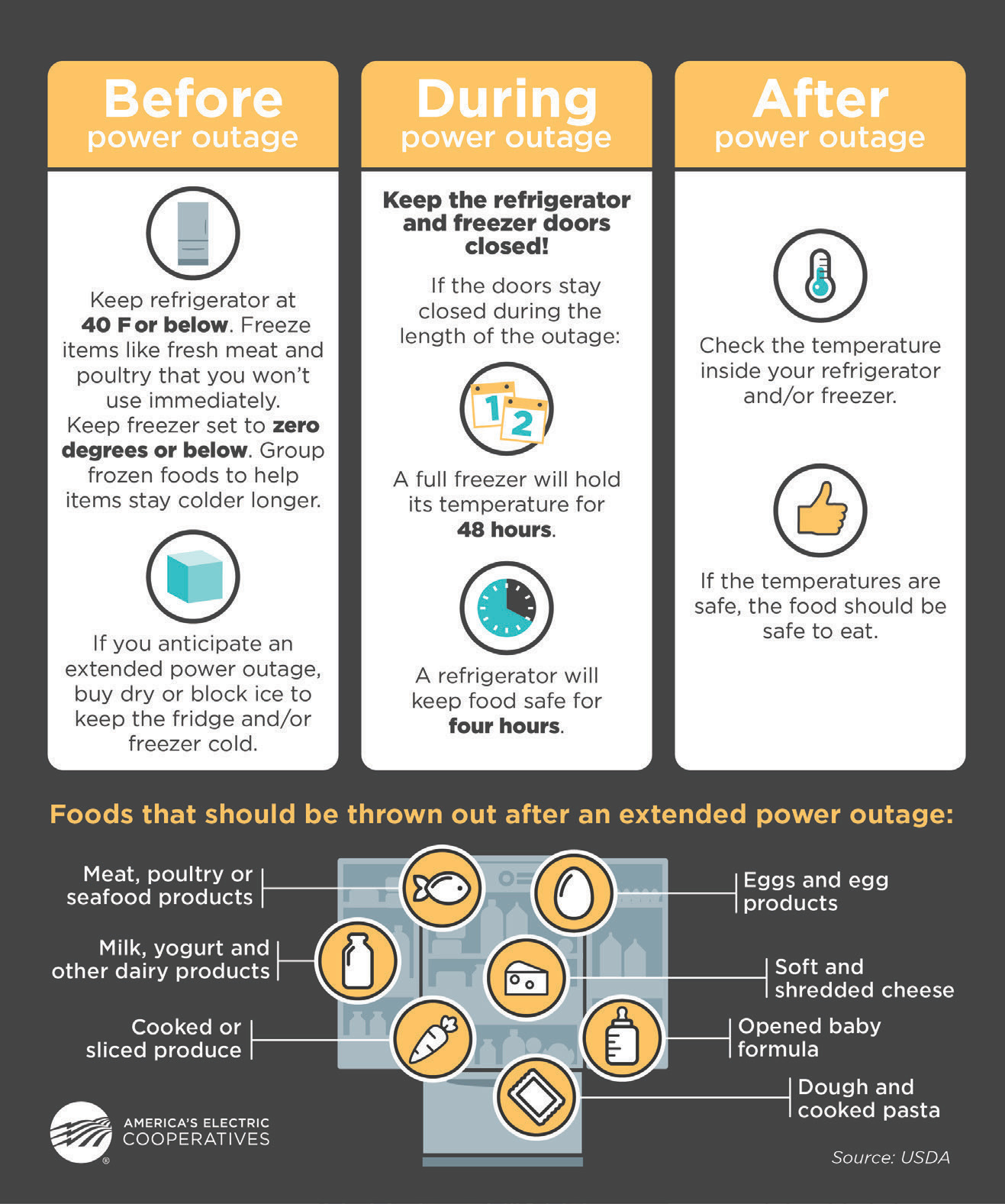We’ve all been there.
A storm rolls through, toppling trees and damaging power lines. The power goes out. And although it may only be a matter of minutes or hours before BCREMC gets things up and running again, thawing food in the refrigerator and freezer can make that relatively short time seem like an eternity.
It’s important to keep cold food safe during a power outage, and a little advanced preparation and know-how can keep your family safe from food-borne bacteria when the lights come back on. First and foremost, keep your refrigerator and freezer doors closed as much as possible to maintain the cold temperature.
Try to monitor food temperatures. Meat, poultry, fish and eggs should be refrigerated at or below 40 degrees Fahrenheit and frozen food at or below zero degrees.
If the power stays out for a prolonged period, there are a few ways to aid your refrigerator and freezer in the fight to keep things cold. The simplest tip is to keep your freezer full. If it’s not full, group items close together to preserve the cold. Dry ice can help keep freezers chilly. It will take 25 pounds or so to keep a full, 10-cubic-foot freezer safe for three to four days. Fifty pounds of dry ice should hold an 18-cubic-foot full freezer for two days. Wear heavy-duty gloves or use tongs when handling dry ice — the temperature of dry ice is 216 degrees below zero — and separate it from food with cardboard to prevent freezer burn.
During cold months, it may be tempting to store food outside. Although this may work for cold drinks, food can spoil in direct sunlight. Rather than putting the food outside, consider taking advantage of the cold temperatures by making ice.
Try using containers you already have and fill them with water, then leave them outside to freeze. Once completely frozen, transfer to your refrigerator, freezer or coolers.
Power back on? Make sure your food is still safe by either checking its temperature or looking for ice crystals. If frozen food is 40 degrees or below or ice crystals are visible, it’s safe to refreeze. Discard any perishable refrigerated food (meat, poultry, fish, eggs and leftovers) that have been above 40 degrees for two hours.




